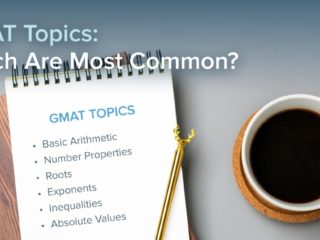Last Updated on May 5, 2023
GMAT OFFICIAL GUIDE PS
Solution:
We are given that a = -0.3; what we must keep in mind in this problem is that we are really being tested on what happens when we raise a negative proper fraction to an exponent. We say negative proper fraction because -0.3 = -3/10.
The fact that a = -0.3 is not that important; in fact, we could use any negative proper fraction, such as -1/2 or -1/3 to obtain the correct answer.
Let’s look at what happens when a negative proper fraction is raised to an even or odd power.
Rule: When a negative proper fraction is raised to an even-powered or odd-powered exponent, the value increases. If this rule is hard to see, let’s test -1/2. We can start by raising -½ to the even exponent of 2.
(-1/2)^2 =1/4
¼ > -1/2
Clearly, we can see that positive ¼ is greater than -½.
Let’s now check an odd-powered exponent; we can raise -1/2 to an exponent of 3.
(-1/2)^3 = -1/8
-1/8 > -1/2
Although both values are negative, -1/8 is greater than -½.
We can use these rules to answer the question. Since we are raising a negative base to a power, the largest value will be a^2, since that is positive, and a and a^3 are negative. That leaves us with answers B and E. Finally, we know a^3 must be greater than a, thus eliminating answer choice E.
Answer: B



